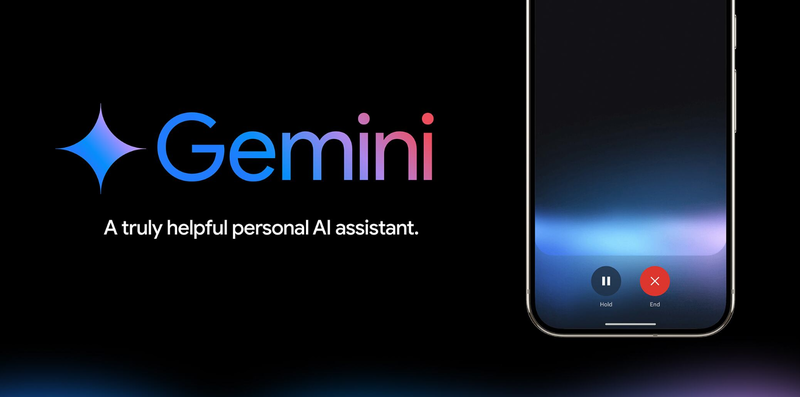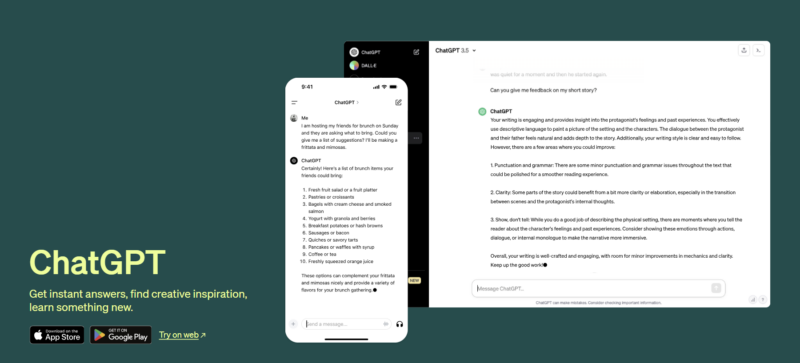“Step Aside, ChatGPT!” Google Emerges as a Frontrunner in the Global AI Market
Input
Modified
Gemini Sees Rapid Growth in User Numbers Google Accelerates Efforts to Boost AI Model Adoption Across Smart Devices and Content Creation Market Leader OpenAI Falters as Push for Commercialization Stumbles

Google is gaining recognition for its investment value in the artificial intelligence (AI) market. By leveraging consumer-friendly business strategies and high-quality services, the company has rapidly strengthened its position in the industry. In contrast, its rival OpenAI faces a potential financial crisis as its attempts at commercialization have faltered.
Gemini’s Rapid Rise
On June 23 (local time), global asset investor A.J. Burton published a report on Seeking Alpha, a financial news and analysis platform, asserting that Google’s newly launched AI subscription services offer equivalent features to OpenAI’s ChatGPT Plus—at the same price point—while providing additional benefits. His remarks were understood to refer to Google’s “AI Premium” and “Ultra Plan” tiers, launched on May 20. These plans match ChatGPT Plus in core features but include extras like 2 terabytes of cloud storage and Agent AI capabilities. Google is thus positioning itself as a more user-centric alternative to OpenAI in its push to secure market share.
Google is also doubling down on improving service quality. On June 17, the company announced via its official blog the full release of the Gemini 2.5 Flash and Pro models, along with a preview of the Flash-Lite model. The Pro model, a high-performance system that has topped benchmark rankings alongside OpenAI’s o3-pro model, attracted attention even before launch. Previously available only in testing environments, the Gemini 2.5 line is praised for its speed, affordability, and strong performance, making it suitable for a wide range of real-time applications.
These efforts are translating into explosive user growth. Internal documents revealed during Google’s ongoing antitrust trial showed that as of March 2025, Gemini had 35 million daily active users (DAU) and 350 million monthly active users (MAU) globally. That’s nearly a fourfold increase from October 2024, when DAU stood at just 9 million.
Expanding the Scope of AI Applications
Google’s AI user base is expected to continue expanding, thanks to its aggressive strategy of broadening AI integration beyond search into devices and content creation. At the Google I/O 2025 developer conference held on May 20, the company unveiled its next-generation search feature, AI Mode, an upgraded version of last year’s “AI Overview.” This multimodal conversational search feature can process and respond to a variety of inputs, including text, voice, images, and video.
In addition, Google announced plans to launch XR-based smart glasses later this year in collaboration with Samsung Electronics, South Korea’s Gentle Monster, and U.S.-based Warby Parker. The glasses will sync with smartphones, enabling hands-free access to apps that offer real-time translation, navigation, and camera-sharing features. Google emphasized that the glasses will support multimodal AI powered by Gemini, for both prescription and non-prescription lenses. The company also confirmed that Gemini features will be expanded to other platforms in the coming months, including Wear OS smartwatches, Android Auto, Google TV, and the Chrome browser.
In the field of generative content, Google is rolling out proprietary AI tools in a direct challenge to industry leaders like OpenAI’s Sora and DALL·E. On the same day, Google introduced Veo 3, a video-generation AI capable of producing cinematic-quality content by integrating sound effects, background audio, and dialogue. Also unveiled was Imagen 4, an image generation model that creates 2K high-resolution visuals with extremely fine textures and detail, setting a new bar for precision in visual AI output.
With a sharply expanding user base, aggressive platform integration, and bold forays into content creation, Google’s Gemini ecosystem is now emerging as one of the strongest contenders in the global AI race, positioning the company to challenge and potentially outpace OpenAI in multiple arenas.

Is ChatGPT Facing a Cash Crunch?
While Google is making significant strides in the AI market, industry heavyweight OpenAI is struggling to maintain its momentum. The company’s attempt to restructure as a for-profit entity has effectively been withdrawn, exacerbating its financial challenges.
Founded in 2015 with the mission of creating “AI for everyone,” OpenAI initially operated as a nonprofit organization. In 2019, due to rising research costs, it established a for-profit subsidiary, OpenAI Global, which is controlled by the nonprofit board. This entity handles AI development and commercialization, operating under a unique structure as a “capped-profit company.” The nonprofit parent makes major decisions, and any profits exceeding a 100x return on investment are redirected to the nonprofit.
Despite this hybrid model, OpenAI has been unable to cover its rapidly escalating costs of AI development. As a result, the company began exploring the option of converting its current for-profit subsidiary, which is still under nonprofit board oversight, into a public benefit corporation (PBC). PBCs are mission-driven firms that publicly declare a commitment to the public good, but unlike nonprofits, they are not legally obligated to prioritize that mission over profit. Transitioning to a PBC would eliminate the capped-profit model, making it easier for OpenAI to attract outside investment.
The problem, however, lies in the widespread opposition to OpenAI’s profit-driven pivot. Several influential voices, including Geoffrey Hinton, Nobel laureate and professor at the University of Toronto, and Mark Zuckerberg, CEO of Meta, submitted letters to courts and to the governments of California and Delaware, opposing OpenAI’s move toward commercialization.
Elon Musk, CEO of Tesla and one of OpenAI’s early investors, also filed a lawsuit, accusing OpenAI of breaching its founding agreements by abandoning its nonprofit commitment in pursuit of profit. Facing mounting criticism, OpenAI ultimately backed away from the structural overhaul. Last month, the company posted a statement on its website confirming that even if it restructured as a public benefit corporation, the nonprofit board would retain control over OpenAI’s governance, a move widely interpreted as a concession to growing public and legal pressure.





















